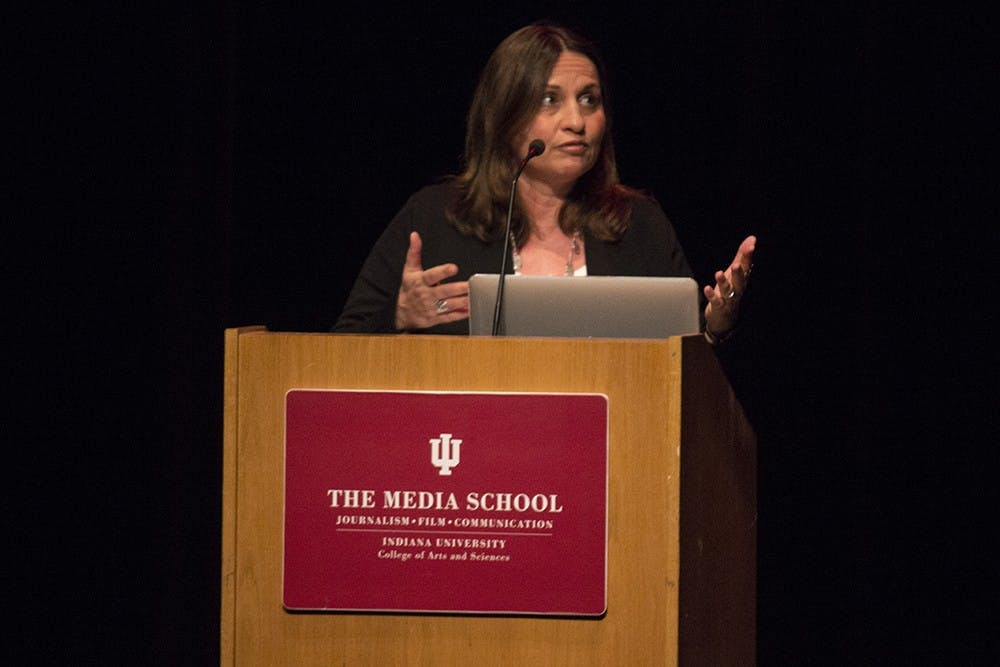National Public Radio’s international correspondent Soraya Sarhaddi Nelson visited IU to speak to students about “War, Migration and Terror: The Globalization of Regional Conflict” at 5:30 p.m. Thursday at the Buskirk-Chumley Theater.
The talk, which was co-sponsored by the Media School, IU’s Center on Representative Government and the Institute for Advanced Study, was part of the Media School’s Speaker Series.
After Nelson’s speech, IU’s Center on Representative Government awarded her the 2015-16 Lee H. Hamilton Fellowship for Public Service.
Nelson, who has been in Paris covering the terrorist attacks, is currently based in Berlin and can be heard on NPR’s Morning Edition and All Things Considered.
“Tonight I’m going to talk to you about events that are far removed from the Midwest,” Nelson said. “These are events that I’ve had front row seats to since 9-11, which have come full circle last month with the gun and bombing attacks in Paris that killed 130 people.”
Previously based in Cairo, Nelson has also covered a variety of events within the Arab world from the Middle East to North Africa.
After opening the NPR Kabul Bureau in 2006, Nelson provided listeners with a look into the daily lives of Afghan people as well as the growing interference of Iran and Pakistan in Afghan affairs.
Anne Kibbler, the director of communications and media relations at the Media School, organized the event.
“We are bombarded constantly by news programs in which there is a lot of bias and noise,” Kibbler said. “We are also bombarded by so many sources on the Internet, some of which are questionable, so to come and listen to somebody who has all these credentials and all of this experience is invaluable.”
Kibbler said she hopes students will leave Nelson’s talk with an understanding of the current global situation as well as what it takes to be a serious journalist.
“She has a really deep knowledge of the history and culture of these regions,” Kibbler said. “Now, with the refugee crisis and all of the refugees coming into Europe, she has a really great perspective and understanding of the culture they’re coming from and the culture they’re coming to.”
In terms of the refugee crisis, Nelson said Europe needs to address the matter of who is — and isn’t — welcome.
“I mean, is it really based on ethnicity, is it based on what country they come from?” Nelson said. “Why does a migrant not have a right to come to Germany or to these other countries, especially when countries, like Germany, have a labor shortage?”
Nelson said part of the problem is due to Europe’s inadequate immigration policy.
“They don’t have people, for example, sitting in the embassy in Kabul or somewhere else, to help people gain access legally and to come in legal manners,” Nelson said.
Nelson said this forces refugees to take matters into their own hands, which she said is not only expensive but incredibly dangerous as well.
Additionally, Nelson said leaders such as Hungarian Prime Minister Victor Orbán are capitalizing on this crisis to bolster their increasingly right-wing platforms.
“It’s really put the future of Europe into question,” Nelson said. “Is this going to be a place where you have the European Union with open borders and common currency, or is this going to be a place where you have lots of walls and fences?”






